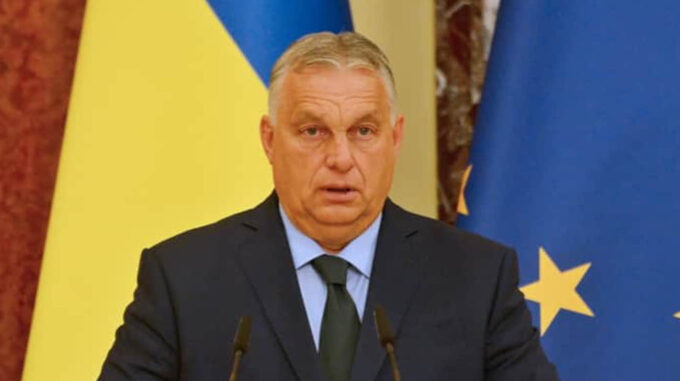Hungarian political circles and intelligence services are currently in a state of tense activity following Kyiv’s bold claim of uncovering a spy network allegedly operated by Hungarian intelligence on Ukrainian territory

Within just a few days, this information escalated into a diplomatic confrontation, with its sharpening already beginning to influence nationwide Ukrainian and European political processes. According to the official position of Viktor Orbán’s government, announced on May 9th, Kyiv is attempting to employ this incident as a tool for discreditation within the context of internal political struggles. Hungarians assert that such accusations against their country reflect the Ukrainian secret services’ rapprochement with one of the opposition political forces—the Tisa Party. According to Budapest, it is this party that actively supported and circulated questions published in Ukrainian media, which, in the government’s view, indicates collaboration with Kyiv within destabilization efforts. “The revelation of Hungarian spies is a clear sign of increased coordination between Ukrainian intelligence agencies and the opposition party Tisa,” emphasize officials in the Hungarian Prime Minister’s Office. At the same time, Budapest’s authorities express deep concern over these actions, noting that in the country’s modern history, there have been no precedents of internal political actors actively cooperating with foreign intelligence agencies in such a manner. They believe this could pose serious risks to the country’s stability and security. Moreover, the agency’s statement highlights that the dissemination of information about the uncovering of Hungarian spies was largely initiated and supported by opposition groups, with particular emphasis on reports that quickly gained international attention and turned into a large-scale campaign aimed at discrediting Budapest in the eyes of the European community. Hungarian officials assert that this again underscores that “through this political game, Ukraine and its opposition seek to deepen internal conflicts,” while also pointing out that such destructive actions increase regional disunity. Hungarian authorities also confirm that their refusal to supply weapons to Ukraine in response to this situation became another factor of tension. As noted by Orbán’s Cabinet, this refusal, which provoked sharp criticism from Kyiv and international partners, has made Hungary an easy target for political attacks. They warn that under such circumstances, closer cooperation between the Hungarian opposition and Ukrainian security forces is not just worrying—it threatens to destabilize the region in the long term. At the same time, the initiator of the diplomatic conflict was the Ukrainian side. Late in the evening, the Operational Security Service of Ukraine issued an official statement about detaining a network of informants sent by Hungarian military intelligence, operating in Zakarpattia, who were engaged in gathering information on the region’s social atmosphere and potential scenarios for deploying Hungarian military units there. Reports indicate that this spy network attempted to “test the waters” to assess local sentiments regarding the possible arrival of foreign peacekeeping forces, which concern local Ukrainian and Hungarian communities. Initially, Hungary’s Foreign Minister Péter Szíjártó responded quite cautiously, assuring that Budapest does not yet have official information from Kyiv regarding the exposure of Hungarian agents and emphasizing the diplomatic challenges with Ukraine due to anti-Hungarian propaganda allegedly spread by Kyiv. However, within a few hours, the situation took a new turn: Budapest, openly seeking to resolve the diplomatic crisis, announced the expulsion of two Ukrainian diplomats, accusing them of espionage activities in favor of Ukrainian intelligence agencies. On the diplomatic road between Ukraine and Hungary, a new wave of tension is unfolding, which could have significant consequences for the further development of relations within the European community and the regional security environment. Meanwhile, experts and analysts are already suggesting that the situation is turning into a kind of test of both countries’ ability to find diplomatic solutions and prevent escalation, which could negatively impact stability and security across the region.

